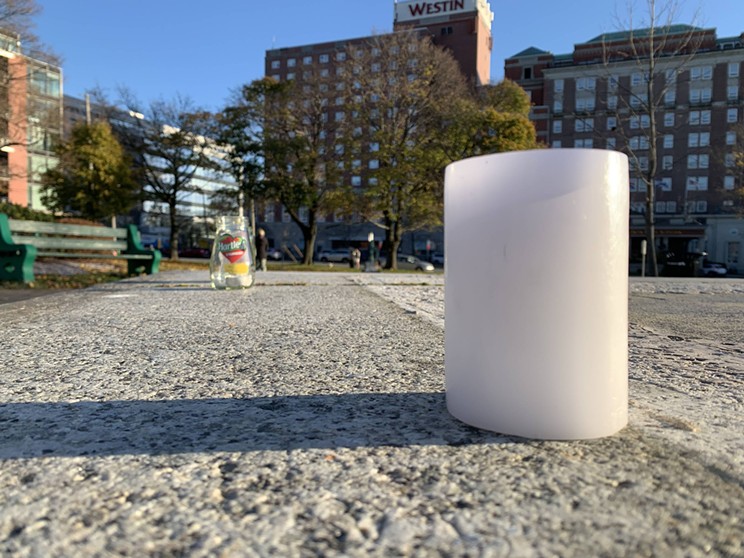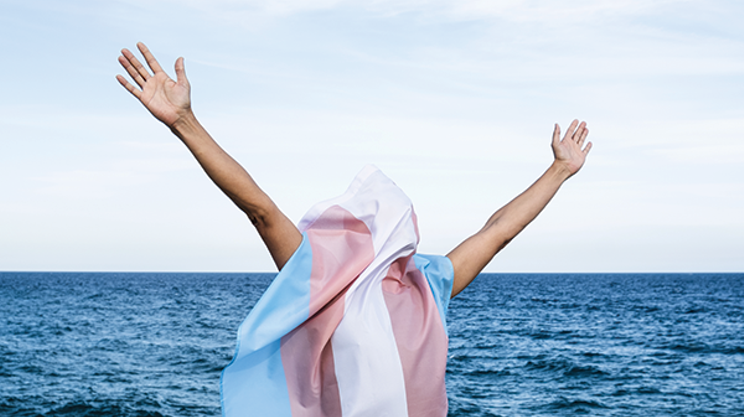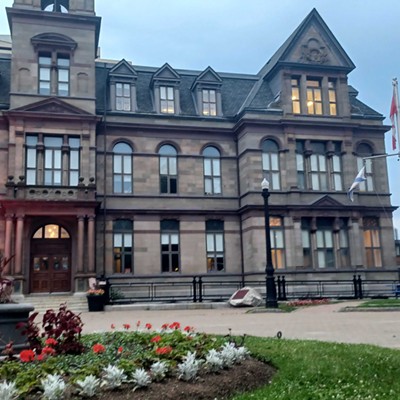The 3,443 kilometre distance separating Halifax from Colorado Springs felt awfully small on Sunday evening, as about two dozen vigil attendees gathered at the Peace and Friendship Park to mark the annual Transgender Day of Remembrance.
As trans people and their allies mourned those lost to transphobic-rooted violence over the years, many couldn’t help but look south of the Canada-US border. A day earlier in Colorado Springs, a gunman opened fire in a gay nightclub, killing five people and injuring 25 others. That the shooting happened on the last day of Transgender Awareness Week has some in our city feeling the club and its attendees were targeted—and fearing that without provincial action, transgender lives in Nova Scotia continue to be at risk.
“How many more of us need to die before we take action?” Halifax-based trans podcaster Rae O’Neil asked fellow vigil-goers on Sunday evening. “How many more vigils are we going to have to organize and attend before the value of all of our gender-diverse lives are treated with the respect, dignity and value they deserve?”
Advocates decry provincial inaction
Nova Scotia has the largest per-capita population of transgender people in Canada, according to the 2021 census. Roughly one in 375 people aged 15 and older identified as transgender in the latest Statistics Canada survey. By contrast, that same figure was closer to one in 525 for people aged 15 and older Canada-wide. Only Victoria, BC boasted a higher per-capita proportion of trans people (0.33%) than Halifax (0.32%).
But 10 years since Nova Scotia enshrined gender identity and gender expression as protected under its human rights act, trans advocacy groups, including the non-profit Gender Affirming Care Nova Scotia, argue the province is failing to protect trans people. Last week, Gender Affirming Care Nova Scotia wrote Nova Scotia’s minister of health and wellness, Michelle Thompson, as well as the province’s minister of mental health and addictions, Brian Comer, that it was “past time” that the government “fully acts to address the obvious failings” of Nova Scotia’s health system—particularly when it comes to accessing gender-affirming care, which has been shown to lower suicide rates among trans and non-binary youth.
Until earlier this year, the province required anyone seeking gender-affirming surgery to have a letter of support from a Nova Scotia specialist, whether they received their surgery in the province or elsewhere. Nova Scotia waived that requirement for in-province operations in July. But Gender Affirming Care Nova Scotia’s advocates argue that since the vast majority of those surgeries are already performed out-of-province, the government’s changes have “little-to-no impact.”
Those same advocates say they’ve been waiting months to hear from the province after presenting at the standing committee on health and being told they’d get a response from government. So when Nova Scotia lit up Province House on Sunday and tweeted about it, that frustration surfaced.
Province House is illuminated in the colours of the Transgender Flag tonight to mark the Transgender Day of Remembrance. 🏳️⚧️#TransDayofRemembrance pic.twitter.com/bAJaIV8oBb
— Nova Scotia Legislature (@NSLeg) November 21, 2022
“Stop wearing us,” O’Neil replied. “Where the hell were any of you?”
GACNS encourages writing MLAs
Gender Affirming Care Nova Scotia is encouraging allies to write their MLAs with several calls to action, adding that “this is not a political issue, it is a matter of human rights.”
At a lip-service level, at least, Ottawa agrees.
“Too many have paid with their lives or endured unacceptable discrimination for living their truth and expressing themselves as they are,” Canada’s minister for gender equality, Marci Ien, said in a statement on Sunday.
In the meantime, on a wintry Monday morning, a collection of candles brace against the wind, buffeted and few in number, but still standing.
















